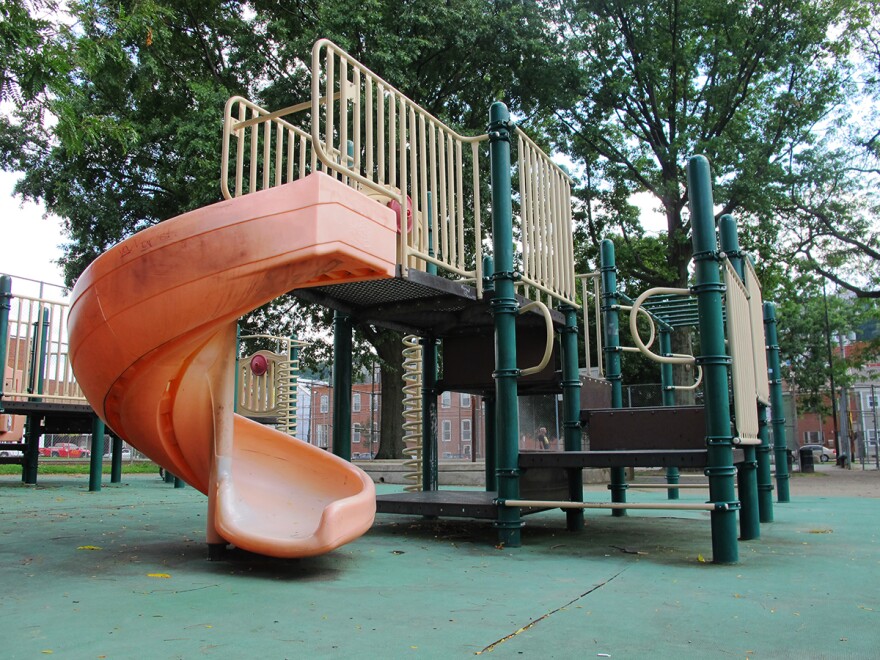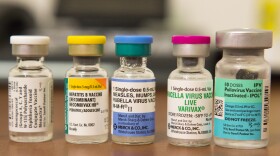As a result of the pandemic, many kids have needed mental health care.
For WESA’s series on the pandemic’s impact on mental health, Sarah Boden spoke with pediatric psychiatrist Dr. Abigail Schlesinger. Schlesinger practices at UPMC, which reports that the volume of pediatric patients seeking mental health treatment is up 30% since the spring of 2020. She said her clients, who range in age from toddlers to college students, have been impacted in different ways.
This conversation has been edited for length and clarity
Dr. Abigail Schlesinger: I am concerned that we have some high risk kiddos that have spent a lot of the year not going to every class every day. Up at night, asleep during the day. And for those younger kids that really develop their social skills and how they communicate in a group setting, they may not have had the opportunities that they would have had. I'm not suggesting anyone be scared or were worried. Just watch your kid: you look at their strengths, but you also might consider what they're what their weaknesses were, where you were concerned about them. If you knew you had a child who had trouble sitting in the past and for a year they've been able to stand, well then that's an area where you should be talking to the teachers about how to get them additional support.
Sarah Boden: When it comes to preteens and teens, these guys are old enough to remember a world before Covid. What are some things you're hearing from your clients regarding the incredible challenges our society has seen in the past year and a half? How are they feeling about it?
Schlesinger: I would say a consistent theme I've heard from teens, much more than before Covid, although it was always a little bit is, “Why don't the parents know what they're doing? Right. Like, why can't they figure this out?” To us, that means seem obvious, right? Like this is a generational stressor that no one's ever seen. There hasn't been a pandemic since 1918. But we know that. We've experienced, you know, myself, more than 40 years of never having anything like this. They don't know how different this is in many ways.
Boden: For kids that have gone through an incredible loss, perhaps the loss of a parent. How can we help them grieve in a healthy way?
Schlesinger: Well, remembering grieving is not in a straight line, and they may not be ready to grieve when the parents are ready to grieve. Kids will grieve differently and will have different sets of experiences as they get older. A young child who loses a parent may not be ready to even talk about it, but will be impacted by it. I think one of the hardest things for parents to do when there have been major losses is to recognize that your kid's grief will continue. That's OK, that's normal. It will continue up through adulthood as they sort of adapt to their new reality.
Boden: You've been a psychiatrist for about 20 years. Have you ever experienced a period of time as dynamic or unpredictable as what has been caused by Covid?
Schlesinger: The closest to this experience, I think, was 9/11. A shared experience of the entire country. And there was a period of uncertainty after that where there were other things that happened in September and October that put us at risk and the world changed drastically, quickly. But then things found a new normal pretty fast. So what's different now is the ongoing nature of what's going on. It has changed us all. And our kids will be different because of this. It doesn't mean they're going to be scarred forever, but they'll be different because they went through this.
Boden: How do you think they'll be different?
Schlesinger: I don't 100% know. But I think that I'm continually amazed at how resilient kids can be if we put the right things in place to help them, and how hard it is for us as adults to adapt. Because for kids, things change all the time. You know, the elementary school students, no trouble wearing masks. It's the adults. We don't want to do it because we remember a world without masks and we want to go back to that place. So I guess I'm continually impressed with how resilient kids are and how we as adults need to keep reminding ourselves to learn from them as well.
This story was produced as part of "Pittsburgh's Missing Bridges," a collaborative reporting project by the Pittsburgh Media Partnership.













